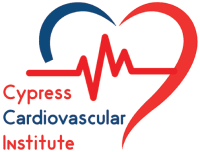It’s natural to feel concerned when you experience heart palpitations, but knowing when to seek help can be confusing. While many palpitations are harmless and often linked to factors like stress or caffeine, certain symptoms warrant your attention. If you notice chest pain, shortness of breath, or a racing heart accompanied by dizziness, it’s important to consult a healthcare professional. Understanding your body and its signals is key to maintaining your heart health.
Understanding Heart Palpitations
What Are Heart Palpitations?
Heart palpitations are sensations that feel like your heart is racing, fluttering, or pounding irregularly. You might notice them when you’re at rest or engaged in physical activity. While often harmless, these feelings can sometimes signal underlying health concerns. Typically, they stem from the heart’s electrical system, which controls your heartbeat and rhythm.

These sensations can feel alarming but often do not indicate a serious problem. In some cases, you may experience palpitations without any external triggers, while at other times they can be linked to factors such as stress, caffeine intake, or intense exercise. Being attuned to your body’s signals is necessary for distinguishing between normal variations and symptoms that may require medical attention.
Common Causes of Heart Palpitations
Several factors can contribute to heart palpitations, and they can range from lifestyle choices to medical conditions. Common triggers include high caffeine consumption, emotional stress, anxiety, hormonal changes, and certain medications. In some instances, underlying conditions such as hyperthyroidism, anemia, or heart-related issues may be the source of your palpitations.
Your lifestyle heavily influences the frequency of palpitations. For instance, excessive alcohol consumption or nicotine use can increase the likelihood of experiencing these sensations. If you notice a pattern linked to specific activities or substances, it may be an indicator that these factors could be contributing to the problem.
In addition to lifestyle factors, some people may experience palpitations due to dehydration or electrolyte imbalances. High-intensity exercise can also lead to heart rhythm irregularities. Knowing these potential causes can empower you to make adjustments and monitor your heart health effectively.
When to Worry About Heart Palpitations
Signs That Indicate a Serious Issue
If you experience heart palpitations accompanied by other symptoms, it’s important to take notice. Seek medical advice if you have chest pain, shortness of breath, dizziness, or fainting spells. These indications could be signals of an underlying condition, such as arrhythmia or coronary artery disease. For instance, a rapid heart rate above 100 beats per minute (tachycardia), especially when it occurs at rest or during minimal activity, warrants further investigation.
Additionally, if your palpitations persist for a long duration or occur frequently, it’s wise to consult with a healthcare provider. Palpitations that last more than a few minutes or are accompanied by nausea or excessive sweating can indicate a heart issue that needs immediate evaluation. Keeping track of when these palpitations occur and any associated symptoms can provide valuable information for your doctor.
Situations That Require Immediate Medical Attention
There are specific scenarios where heart palpitations necessitate urgent medical care. If you experience a sudden onset of rapid heartbeat combined with severe chest pain or discomfort, this may indicate a heart attack. Likewise, if you find yourself fainting or feeling unusually weak, it signals a possible issue with your heart’s rhythm or function. Don’t hesitate to call emergency services if you notice these alarming symptoms, as timely intervention can be life-saving.
Furthermore, heart palpitations that occur after intense physical exertion, especially if you’re unaccustomed to such activity, should not be ignored. This could be a sign that your heart is under strain, leading to potentially serious complications. When in doubt, it’s best to err on the side of caution and obtain a professional evaluation.
Lifestyle Factors That Can Affect Palpitations
Your daily habits can play a significant role in the occurrence of heart palpitations. Certain lifestyle factors, such as stress, anxiety, diet, and caffeine intake, can all trigger or exacerbate these sensations. Understanding how these elements influence your heart can help you take proactive measures to minimize their impact. Here are some key factors to consider:
- Stress
- Anxiety
- Diet
- Caffeine Intake
Thou can effectively manage your heart health by identifying and addressing these lifestyle factors.
Stress and Anxiety
High levels of stress and anxiety can significantly contribute to the frequency and intensity of palpitations. When you’re under pressure, your body releases hormones like adrenaline, which can lead to increased heart rate and the sensation of fluttering. Techniques such as mindfulness, meditation, and deep-breathing exercises can help you alleviate these stressors. Incorporating regular physical activity can also boost your mood and reduce anxiety levels, potentially diminishing your palpitations.
Diet and Caffeine Intake
Your diet and caffeine intake are also important factors to monitor. Foods high in sugar and processed ingredients can disrupt your heart rhythm, while excessive caffeine can stimulate your heart, making you feel like it’s racing. You might find that reducing caffeine or substituting it with herbal teas can lessen the occurrences of palpitations. Staying hydrated and ensuring a balanced diet rich in fruits, vegetables, and whole grains is imperative for heart health.
When considering diet and caffeine intake, it’s important to pay attention to how different foods and beverages affect your body. For example, sneaking in that afternoon espresso may give you a quick boost, but it could also lead to an uncomfortable flutter in your chest later. Keeping a food diary can help you pinpoint specific triggers, allowing you to make necessary adjustments. Thou must prioritize a heart-friendly diet to reduce the chances of experiencing palpitations.
Medical Conditions Linked to Heart Palpitations
Heart Disease
Many instances of heart palpitations stem from underlying heart disease. Conditions such as coronary artery disease, arrhythmias, or cardiomyopathy can manifest as irregular heartbeats. If you’re experiencing palpitations along with symptoms like shortness of breath, dizziness, or chest pain, it’s vital to seek medical attention. Heart disease can be serious and often requires management through lifestyle changes, medication, or even surgical procedures.
Studies indicated that individuals with heart disease may experience palpitations more frequently, often triggered by physical exertion or emotional stress. Monitoring your heart health is vital, especially if you have risk factors like high blood pressure, high cholesterol, or a family history of heart issues. Regular check-ups and screenings can help catch any potential problems early.
Thyroid Issues
Thyroid imbalances can significantly affect your heart rate and rhythm. Conditions like hyperthyroidism, where the thyroid gland is overactive, often lead to symptoms such as rapid heartbeats and palpitations. Conversely, hypothyroidism may occur in less direct ways, affecting your heart’s overall health and function. If your thyroid hormones are imbalanced, it can lead to heart conditions that might require treatment from an endocrinologist.
Elevated levels of thyroid hormones can increase metabolic rates, directly impacting heart function. For instance, individuals with hyperthyroidism may experience palpitations, anxiety, and weight loss. Treatments such as antithyroid medications, radioiodine therapy, or surgery can help normalize thyroid levels and reduce palpitations.
Diagnostic Tests and Evaluation
How Doctors Diagnose Heart Palpitations
When you report heart palpitations, doctors typically begin with a thorough medical history and physical examination. They will ask about the frequency, duration, and triggers of your palpitations, along with any accompanying symptoms such as dizziness or chest pain. This information helps them determine whether the palpitations are benign or indicative of a more serious condition. In some cases, further diagnostic tests may be necessary to pinpoint the exact cause.
Doctors may also explore your lifestyle factors, including caffeine consumption, stress levels, and any medications you take. By understanding your unique situation, they can tailor the diagnostic approach to best assess your condition and provide appropriate recommendations.
Common Tests You Might Expect
Some common tests you might encounter include an electrocardiogram (ECG or EKG), which records your heart’s electrical activity and can reveal abnormalities. Another test, a Holter monitor, allows for continuous heart monitoring over 24 to 48 hours, which is especially useful for capturing intermittent palpitations. If necessary, your doctor might recommend an echocardiogram to visualize the heart’s structure and function.
Additionally, you might undergo blood tests to check for electrolyte imbalances or thyroid issues, both of which can influence heart rhythm. If deeper issues are suspected, stress tests may be performed to see how your heart performs under physical exertion.
Treatment Options
Lifestyle Changes for Heart Health
Making lifestyle changes can significantly improve your heart health and reduce the occurrence of palpitations. Start by focusing on a well-balanced diet rich in fruits, vegetables, whole grains, and lean proteins. Incorporating foods high in potassium, like bananas and spinach, can help maintain consistent heart rhythm. Regular physical activity, such as walking or swimming, for at least 150 minutes a week also promotes cardiovascular health.
In addition to diet and exercise, managing stress through practices like yoga, meditation, or deep-breathing techniques can also help decrease palpitations. Limiting stimulants is important too; consider reducing your intake of caffeine and nicotine, both known to trigger irregular heartbeats. Prioritizing adequate sleep each night supports overall heart function, helping you maintain a balanced lifestyle.
Medical Treatments and Interventions
When lifestyle modifications are not sufficient to control your heart palpitations, medical treatments might be necessary. Your healthcare provider may prescribe medications such as beta-blockers or antiarrhythmic drugs to help regulate your heartbeat and alleviate symptoms. Monitoring your heart rhythm through an electrocardiogram (ECG) or a Holter monitor can provide further insight into your condition, allowing for targeted interventions.
In some cases, more invasive procedures like cardioversion or catheter ablation may be warranted, particularly if you have persistent atrial fibrillation or other serious arrhythmias. These procedures aim to restore normal heart rhythm by either shocking the heart back into rhythm or destroying the rogue electrical pathways responsible for the irregularities.
Conclusion
Summing up, heart palpitations can be concerning, but not all instances warrant immediate alarm. If you experience occasional palpitations without accompanying symptoms like dizziness, chest pain, or shortness of breath, it may simply be your body’s response to stress, caffeine, or dehydration. However, listening to your body is vital; if your palpitations become frequent, intense, or are linked with other troubling symptoms, it’s wise to consult a healthcare professional for reassurance and guidance.
Your heart health matters, and understanding when to seek help can make a significant difference. Keeping track of your palpitations and any concurrent symptoms will empower you to make informed decisions about your health. If in doubt, prioritize your well-being by discussing your concerns with a doctor to ensure you stay informed and safe.
FAQ
Q: What are heart palpitations?
A: Heart palpitations are the sensation that your heart is pounding, racing, or skipping beats. They can be felt in your chest, throat, or neck.
Q: When should I seek medical attention for heart palpitations?
A: You should seek medical attention if heart palpitations are accompanied by chest pain, shortness of breath, dizziness, or fainting. Also, if they occur frequently or disrupt your daily activities, consulting a healthcare provider is advisable.
Q: Can anxiety cause heart palpitations?
A: Yes, anxiety can lead to heart palpitations. Stress and anxiety trigger the body’s fight-or-flight response, which can increase heart rate and cause palpitations.
Q: Are heart palpitations dangerous?
A: Heart palpitations are often harmless, especially if they occur infrequently. However, persistent or severe palpitations may indicate underlying heart issues that require evaluation by a healthcare professional.
Q: What lifestyle changes can help reduce heart palpitations?
A: Reducing caffeine and alcohol intake, managing stress through relaxation techniques, maintaining a healthy diet, and staying hydrated can help reduce the incidence of heart palpitations.

